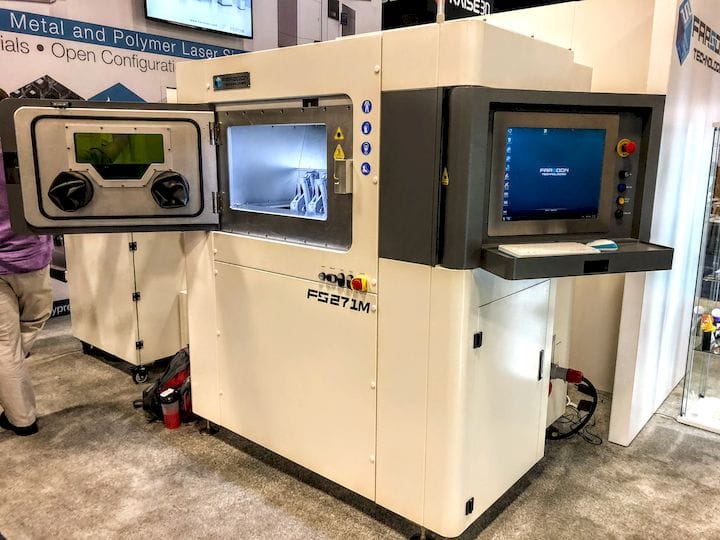![One of Farsoon Technologies’ production 3D printers [Source: Fabbaloo]](https://fabbaloo.com/wp-content/uploads/2020/05/image-asset_img_5eb09bdb1febe.jpg)
Farsoon Technologies announced an interesting partnership with two related companies.
Farsoon Technologies, based in Changsha, China, produces multiple lines of industrial 3D printers, including equipment that 3D prints in both metal and polymer. Both lines use a sintering approach, where a flat bed of (either metal or thermoplastic) powder is selectively hit by a powerful laser beam.
It seems there are quite a few mechanical similarities between the two processes used by Farsoon Technologies, so they likely share knowledge between design teams.
But internal sharing is not the only practice undertaken by Farsoon Technologies. They just announced a partnership between themselves, Arkema and Autodesk.
Arkema is a large France-based, worldwide chemical company that currently employs over 19,000 staff. Their relationship with Farsoon Technologies is based on one of their 3D printing material products, Rilsan polyamide 11. This high-performance polymer is actually made in a renewable manner: it’s made from common castor oil, and is typically used in resin form by automotive and oil & gas industries.
Autodesk should be quite familiar to the readers of this publication; they are one of the world leaders in 3D design software, producing AutoCAD, Netfabb, and Fusion 360, a product frequently mentioned in Fabbaloo and used by many who design for 3D print.
The nature of the three-way arrangement between the parties centers on achieving optimum 3D print results. Farsoon Technologies explains:
“As a result of this collaboration, companies using Autodesk’s Netfabb and Fusion 360 software can easily select the machine and material configuration optimized for process parameters validated by both Farsoon and Arkema. Integrating the processing parameters of Arkema’s polyamide 11 and Farsoon’s advanced hardware within Autodesk’s software enables users to easily access the information they need to accelerate a complete workflow from design to print.”
This arrangement perfectly illustrates one of the current challenges in 3D printing today: achieving high-quality, consistent output. While it’s usually possible to eventually succeed in 3D printing a given 3D model, the trick is to be able to do so efficiently, particularly in a production environment. And to do so very consistently so that clients will receive — within specifications — the exact same part each and every time.
To do so requires a careful coordination of 3D printer, material and software design.
But wait — those three elements are represented by the three-way partnership in this case. By putting these three parties together, a time-saving solution has been found for 3D printing with Farsoon Technologies’ equipment. Users will have less work to achieve optimum prints.
However, this is a relatively rare case in the world of 3D printing today, where machines, software and materials are frequently working independently. Sure, that makes for plenty of choice of products, but it also can generate a lot of work to achieve goals.
Maybe another choice is to get your hands on an operational solution that just works without much issue. That’s the offer promised by Farsoon Technologies here.
I suspect they will add additional combinations in the future, and if this resonates with production users, we may see many other providers doing the same.











An inventive designer has developed a method for producing 3D paper objects using recycled paper and 3D printed molds.